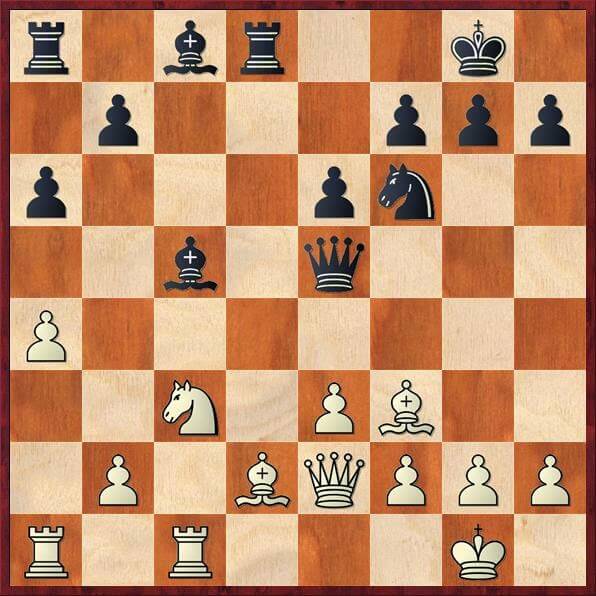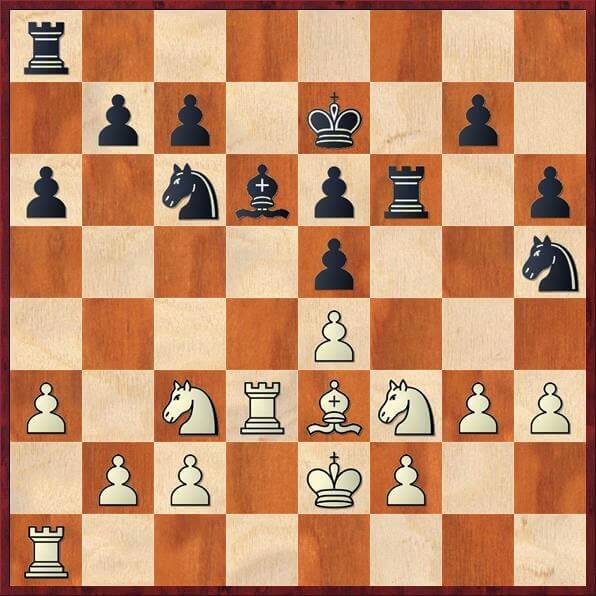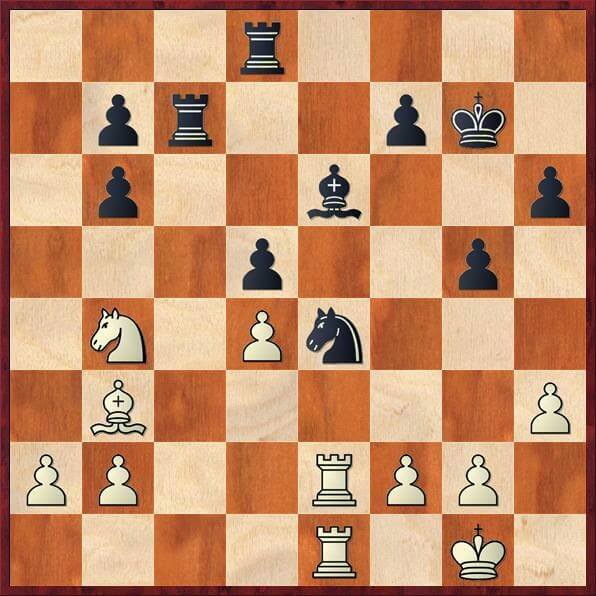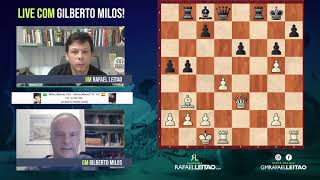How To Improve Your Positional Play
Together with accurate calculation, positional comprehension is one of the most important qualities for a chess player. But without a doubt, it is also the most difficult to learn. While calculation can be developed in a sort of “mathematical” way, in other words, by solving specific problems every day for a long period of time, positional play does not have a learning recipe.
So how did the great chess masters acquire such good comprehension of the game, much bigger comprehension than most of their opponents’? In this series of 2 articles, I will try to encourage players to reflect upon the study of strategy. Some diagrams will be shown throughout the article in order for you to make your self-evaluation. The link to the complete analyses is in the end.

How would you play as white?
I believe that the biggest positional comprehension is in understanding almost immediately the most important factors to be studied in a position. In most cases, when I see a position and way before I try to consider why I like white or black, or which plan I would follow, I simply have an almost instant positional idea of what needs to be done, at least superficially. Positional play has to do with having experience, studying thematic positions, knowing how to plan and avoid the opponent’s plan, knowing the classic players. With hard and disciplined study, and after gaining some experience, a chess player will be able to know how to guide himself along the complex ways of strategic battle.
Important Qualities for a Positional Player
There are a few essential qualities for correct positional play. First, it is necessary to be patient. Sounds redundant, right? Which chess players are not patient? Well, the answer is “Many”. Picture the following situation, which I myself have already witnessed several times as an observer, as a beneficiary and also as a “victim”: a candidate to Chess Master plays his opening game just the way he had planned it, and he gets a solid positional advantage against a strong Grandmaster. The game unfurls in a very favorable way, but the future Master begins to act impatiently. He rarely gets favorable positions against such strong opponents; so he is not used to that. He visualizes a good plan to increase his advantage, but he seems slow. One cannot allow enough time for a Grandmaster to come back in a game. Then he chooses to risk an insecure sequence, which may at least decide the game either for good or bad. And then the result: a huge and round “zero” on the scoring sheet.

White’s turn. Which piece should we improve?
This takes us to another indispensable quality to any chess player: confidence. If the game is supposed to be slow or based on maneuvers, trust that you will be able to control your opponent during a longer game. But if you have to calculate in order to convert your positional advantage, trust your calculation. Do not be afraid of ghosts, otherwise they will appear. Just try to play according to what the position demands.
Some Useful Tips
In order to improve your positional play, you will need a lot of dedication. It is not enough to memorize one book and solve a few little problems. It is necessary to see many examples until you understand a specific theme. One needs to develop critical thinking. One needs to develop abstract thinking and visualize things way ahead. And many times you won’t see a very clear result, but it will appear even if it is in unconscious way. You will know what to think, where to go, how to guide yourself almost instantly, and that will dramatically improve your ranking in tournaments.
Talking about tournaments, you will need a lot of experience to develop positional comprehension. You need to have experienced the positional themes in your own games, both in suffering and in joy. And you will have to meticulously analyze your own examples. Compare your decisions to others in classic models. Analyze your mistakes. When you are the protagonist in a prophylactic decision, a deep plan, or in any other theme, you will be able to recognize it and use it later in the future with much more ease.
In my booklet about the Najdorf Defense, I make some comments about winning “in auto mode”. That one is an important theme in positional play and I would like to reinforce it here. After you gain some expertise in the most important positional themes and specially in the typical plans from specific positions, many times you will win games in “auto mode”, using previously tested and approved ideas when they are well adapted to your position.
And that will happen many times, even against experienced opponents. Chess is certainly a game of endless possibilities, a field that is open to creativity, but we need to understand and take advantage from past Masters’ legacy in order to get the points in tournaments. As you study Steinitz’s examples about the superiority of the bishop against the knight in an open game and use that knowledge to win in similar fashion in a tournament game, you will somehow be winning in “auto mode”.

What is the best plan for white?
Korchnoi once said that chess cannot be learned as much as it needs to be comprehended. But the intuitive comprehension to which he refers only comes about with experience and the acquisition of several themes related to positional chess. So the first step is to test your positional comprehension! Click here and see the solution to the diagrams shown throughout this article.
In part 2 of this article, I will recommend some of the most important themes in positional play together with some bibliographical suggestions.
Solutions to the exercises: click here







No comments